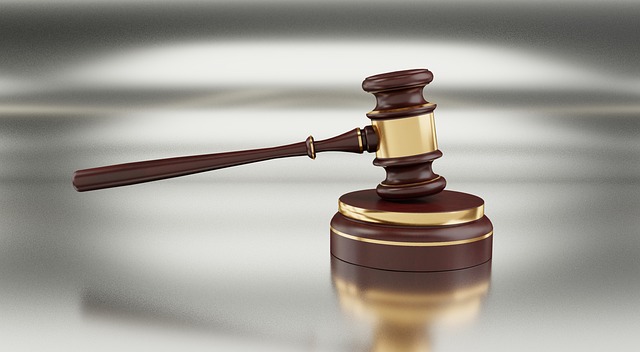The Criminal Procedure Appeal Process Explained is a crucial mechanism within the criminal justice system that ensures fairness and justice, allowing individuals to challenge lower court verdicts for potential reversal. This complex process involves filing a notice of appeal, thorough legal review, briefing, and appellate court decision, focusing on procedural errors like constitutional rights violations or unfair practices. A successful appeal can lead to charge dismissal if bias or wrongdoing is established, providing a chance at justice for those wrongfully convicted or unfairly tried.
“Unraveling the intricacies of criminal law enforcement is paramount in ensuring justice. This comprehensive guide delves into the heart of the criminal justice system, illuminating its foundational elements for appeal processes. From understanding the initial procedure to navigating complex legal pathways, we demystify every step of a criminal procedure appeal.
Get ready to explore key considerations, potential outcomes, and practical insights that underscore the significance of effective appeals in shaping fair legal landscapes.”
- Understanding the Criminal Justice System: A Foundation for Appeal Processes
- Navigating the Steps of a Criminal Procedure Appeal
- Key Considerations and Outcomes in Criminal Law Enforcement Appeals
Understanding the Criminal Justice System: A Foundation for Appeal Processes

Understanding the Criminal Justice System is paramount to comprehending the Appeal Process within it. The system is designed to ensure fairness and justice for all involved, with each step meticulously outlined in criminal procedure laws. At its core, this process involves multiple parties – law enforcement officers, prosecutors, defense attorneys, and judges – working together (or against each other) to investigate, prosecute, and defend cases. This intricate web of interactions is crucial in determining the outcome of a case, and subsequently, the potential for appeal.
The Appeal Process Explained serves as a safety net, allowing individuals convicted in lower courts to challenge their verdicts. It’s a complex yet vital mechanism that ensures errors in criminal procedure can be rectified. A general criminal defense strategy often includes an understanding of appeal rights, which can lead to the complete dismissal of all charges if successful. This process requires meticulous attention to detail and a deep knowledge of legal precedents, making it a critical aspect for both prosecutors and philanthropic and political communities advocating for fair justice.
Navigating the Steps of a Criminal Procedure Appeal

Navigating the complex landscape of a criminal procedure appeal can be daunting, but understanding the process is crucial for both corporate and individual clients seeking to win challenging defense verdicts. The first step involves filing a notice of appeal within a specified time frame, indicating the grounds for review. This initiates a meticulous review process where legal teams scrutinize trial transcripts, evidence, and applicable laws to identify potential errors or misapplications of law.
Subsequent stages include briefing, where lawyers craft detailed arguments highlighting the issues that led to an unfair trial outcome. These briefs are submitted to the appellate court, which then carefully considers the evidence and legal arguments before making a decision. Whether the appeal results in a reversal of the original verdict or a confirmation of the judgment, the process ensures fairness and accountability within the criminal justice system.
Key Considerations and Outcomes in Criminal Law Enforcement Appeals

The Criminal Procedure Appeal Process Explained is a crucial aspect of ensuring justice and fairness within the legal system. When individuals are convicted or face significant charges, they have the right to appeal their case, seeking a review of the initial proceedings. This process involves several key considerations that can significantly impact outcomes.
One of the primary goals is to examine whether there were any procedural errors during the trial, such as violations of constitutional rights or unfair practices by law enforcement. Additionally, reviewing challenging defense verdicts is essential, ensuring that the evidence presented and the subsequent judgment stand up to scrutiny. The process allows for a thorough re-examination of facts, legal arguments, and potential bias, aiming for a complete dismissal of all charges if found warranted. Effective appeals can lead to winning outcomes, providing a chance for those wrongfully convicted or unfairly tried to receive justice.
The criminal justice system’s intricate appeal processes, as elucidated in this article through the lens of a Criminal Procedure Appeal Process Explained, are vital for ensuring fairness and accuracy. By understanding the foundational principles and navigating the steps outlined, individuals and legal professionals can better comprehend and challenge decisions, ultimately fostering a more just and accountable criminal law enforcement framework. Key considerations and outcomes highlighted hereunderpin the significance of appeals in safeguarding rights and refining justice delivery.






